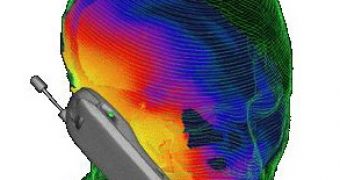The intense use of mobile phones can affect brain activity to a slower level, but they can also enhance the user's capability to focus on specific problems. These conclusions have been reached by Radboud University of Nijmegen and Brainclinics Diagnostic, a group of independent Dutch scientists doing individual brain research.
Mobile phones certainly have a large impact on their users' lives through the solutions that they are capable of providing. It now looks that these devices affect those who rely on them even more than previously expected. The results are surprising, as they show scientific functional brain information that has not been seen before. The fact that mobile phones might cause brain cancer is probably one of the most frequently taunted dangers that handsets can bring. The list has just gotten bigger.
The research's results are stunning. It looks like the phenomenon of decreased brain activity among frequent mobile phone users is similar to the process that can be noticed in the brains of Alzheimer's disease patients. The main researcher of this study, Martijn Ans, commented that the brain activity of people suffering from Alzheimer's disease tends to be extremely low. This is the case for frequent mobile phone users too, although still within "normal" rates. Even so, who wants to have "low brain activity"?
On the other hand, the users showed better focused attention, which can be explained as a learning effect related to making more phone calls in distractive surroundings. Surrounding noise and distractions "train" the user's brain to push away irrelevant information and focus on what's important.
During the study, the scientists compared 100 frequent mobile phone users with 100 non-users and another group of 100 people who seldom use mobile phones. The researchers now look to see whether this effect can be replicated in larger groups, with longer mobile phone use. Moreover, it is left to settle whether this slowed brain activity is to be considered as an adverse health effect or not.

 14 DAY TRIAL //
14 DAY TRIAL //